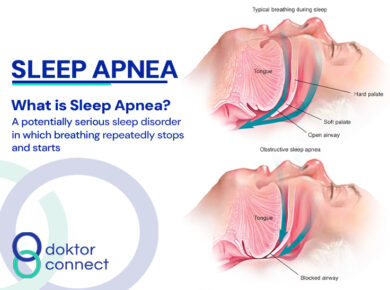Pregnancy is special and daunting, but hypertension in pregnancy can make it more challenging.
Hypertension is blood pressure that is greater than or equal to 140/ 90mmHg
About 1 in 10 women worldwide have hypertensive disorders in pregnancy. Also, countries like Nigeria have a high portion of these women.
What causes hypertension in pregnancy?
The causes of high blood pressure in pregnancy are often unknown. But, some factors can cause or increase your chances of developing hypertension in pregnancy.
Risk factors of hypertension in pregnancy:
- BMI > 24.9 (Overweight or obese)
- Multiple pregnancies (pregnancies in which you are carrying more than one child)
- Age > 35 years
- History of diabetes or hypertension before pregnancy
- Sedentary lifestyle
- Family history of hypertension in pregnancy
- Smoking and alcohol use
- A pregnancy that occurred due to IVF
Having these factors does not mean you will develop hypertension during your pregnancy. But they can increase the probability.
Why is Hypertension in Pregnancy relevant?
Hypertension during pregnancy can harm both you and the baby. If it is left untreated, the damage can be fatal. However, with good treatment and close monitoring, the pregnancy can come to a pleasant end, with both mother and baby in a healthy state.
Five Effects of Hypertension in Pregnancy
- Reduced Blood Flow To The Baby
The placenta is an organ that supplies the baby with oxygen and nutrients during pregnancy. High blood pressure can lead to a drop in the amount of blood that gets to the placenta. This drop in blood flow will reduce the nutrients that get to the baby, causing the baby to have breathing challenges, and develop infections.
- Restriction Of The Baby’s Growth
Reduction in the supply of nutrients will also impact the baby’s growth. Your baby may become smaller than its age as its growth is restricted by a scarcity of nutrients. It may be born with low birth weight. Low birth weight children are at a higher risk of coming down with infections and may struggle more than other children during the early days. The child may be admitted to the Neonatal Intensive Care Unit for further care and support.
- Premature Separation Of The Placenta From Your Womb
The placenta is usually delivered last during labour, but hypertension in pregnancy can lead to an early separation of the placenta from your uterus before delivery. This premature separation leads to heavy bleeding and is life-threatening to you and the unborn child.
- Premature Delivery
Preterm delivery (delivery before 37 weeks) may be necessary if the elevated blood pressure threatens the baby’s development seriously or puts you in danger of deadly complications.
If the blood pressure is uncontrolled, you may be at risk of having a stroke or damage to organs like your kidney or lungs.
Also, hypertension in pregnancy can increase your chances of having cardiovascular diseases in future.
Tips to Reduce Your Blood Pressure
- Reduce your salt intake & eat healthy, balanced meals
- Stay active by exercising. You can discuss with your doctor about exercises you can do during pregnancy.
- Attend your antenatal classes regularly, and always talk to your doctor about your symptoms
- Get a blood pressure monitor at home to check your BP often
- Consult a doctor before taking any medication (you can book an appointment with a doctor here).



